Pluralism and Diversity: The Divine Design for Harmonious Humanity
In today's interconnected world, shaped by globalisation, our society has undergone significant political, economic, and cultural transformations. These changes influence our daily lives, making isolation increasingly impractical. We often need to interact with people from diverse communities, ideologies, and religions to address our challenges and fulfil our needs. While religious fundamentalism can sometimes impede these interactions, it is essential to find ways to overcome these barriers. Embracing diversity as God designed it is crucial. Islam exemplifies this approach, as it not only advocates for tolerance but also fosters respect for other religions.
Respecting Divine Diversity: A Step Further Than Tolerance
Many Quranic verses reveal that religious diversity is Allah’s will and His creation. As stated in the Quran:
وَلَوْ شَاءَ رَبُّكَ لَآمَنَ مَن فِي الْأَرْضِ كُلُّهُمْ جَمِيعًا ۚ أَفَأَنتَ تُكْرِهُ النَّاسَ حَتَّىٰ يَكُونُوا مُؤْمِنِينَ
"If your Lord had willed, all those on earth would have believed [in one religion] entirely. Then, [O Muhammad], would you compel the people in order that they become believers?" (Quran 10:99). This indicates that diversity is divine, and respecting it is a step beyond mere tolerance. Every religion, especially the Abrahamic ones, supports religious diversity, leading to religious pluralism. Islam, however, offers a unique perspective on religious tolerance, emphasising not just coexistence but mutual respect and understanding.
Islam has been accused by some in the West of not supporting pluralism, believing that Muslims and non-Muslims cannot coexist peacefully. This misunderstanding arises from a misdefinition of pluralism. It is not about sharing beliefs but about understanding and respecting different approaches to religious truth and salvation. The Quran supports this view:
يَٰٓأَيُّهَا ٱلنَّاسُ إِنَّا خَلَقْنَٰكُم مِّن ذَكَرٍۢ وَأُنثَىٰ وَجَعَلْنَٰكُمْ شُعُوبًا وَقَبَآئِلَ لِتَعَارَفُوٓاْ ۚ إِنَّ أَكْرَمَكُمْ عِندَ ٱللَّهِ أَتْقَىٰكُمْ ۚ إِنَّ ٱللَّهَ عَلِيمٌ خَبِيرٌ
"O mankind, indeed We have created you from male and female and made you peoples and tribes that you may know one another" (Quran 49:13). Knowledge and understanding of others are more important than mere tolerance.
Religious pluralism can be divided into two kinds:
- Religious pluralism concerns religious ‘truth’ and ‘salvation’.
- Religious pluralism concerning ‘Ethical Behavior’ (Normative Pluralism).
The Quran supports the second kind, as it allows coexistence without necessitating acceptance of other religious approaches.
Power Balancing: A Safeguard Against Oppression
Understanding that respect goes beyond tolerance, which Islam enthusiastically supports, we must recognise the advantages of power balancing between various communities. It benefits both religion and humanity. The Quran states:
وَلَوْلَا دَفْعُ اللَّهِ النَّاسَ بَعْضَهُم بِبَعْضٍ لَّهُدِّمَتْ صَوَامِعُ وَبِيَعٌ وَصَلَوَاتٌ وَمَسَاجِدُ يُذْكَرُ فِيهَا اسْمُ اللَّهِ كَثِيرًا
"If Allah did not repel some people by means of others, there would have been demolished monasteries, churches, synagogues, and mosques in which the name of Allah is much mentioned" (Quran 22:40).
This power balancing is essential for maintaining a peaceful and religiously diverse society.
Allah further says:
وَلَوْلَا دَفْعُ اللَّهِ النَّاسَ بَعْضَهُمْ بِبَعْضٍ لَفَسَدَتِ الْأَرْضُ وَلَٰكِنَّ اللَّهَ ذُو فَضْلٍ عَلَى الْعَالَمِينَ
“Were it not for Allah’s repelling people, some by means of others, the earth would have gone to ruin. But Allah is gracious towards humanity.” (Quran 2:251)
A question arises: why didn’t Allah grant absolute power to human beings, especially Muslims? Absolute power could have made ruling easier, but it was not Allah’s will. Had absolute power been given to one group, it could have led to riots and destruction. Instead, power was divided among different groups to maintain balance and prevent the concentration of power.
The Quran emphasises this principle: "There shall be no compulsion in [acceptance of] the religion" (Quran 2:256). This verse underscores the rejection of forced conversions and oppressive measures against individuals of different faiths. By promoting tolerance, Islam seeks to prevent the concentration of power within a single religious authority and encourages a society where individuals are free to practice their beliefs without fear of persecution.
Another verse, "For you is your religion, and for me is my religion" (Quran 109:6), also emphasises diversity and pluralism. In essence, pluralism and power balance are interconnected, and it is how Allah has designed humanity to be.
Historical Examples of Religious Tolerance and Pluralism
Historical examples within the Islamic world illustrate the role of religious tolerance and pluralism in maintaining a balance of power. The most notable example is the Charter of Medina by Prophet Muhammad (PBUH), which delineated the rights and responsibilities of various religious communities, ensuring their autonomy and protection. This charter aimed to prevent the dominance of one religious group over others and laid the foundation for a harmonious, power-balanced society.
Similarly, during the Ottoman Empire, the Millet System allowed different religious communities to govern their internal affairs, preserving their distinct identities and preventing the concentration of power in the hands of a single religious authority. This inclusive governance model contributed to the stability and longevity of the Ottoman Empire, demonstrating the efficacy of religious pluralism in maintaining equilibrium.
Conclusion
The central purpose of religious tolerance and pluralism in Islam is to balance power dynamics within a society. These principles and teachings are deeply rooted in Quranic verses and historical treatises. By upholding religious tolerance, Islam aims to create a culture where diverse religious groups coexist peacefully, fostering mutual respect and understanding.
Reference:
https://www.youtube.com/watch?v=Igxdcl2dDm0
Lecture of Tariq Ramadan at Boston University
Minnath Alam is a research scholar at Darul Huda Islamic University in the Department of Study of Religion. He is currently pursuing a bachelor’s degree in English Language and Literature. One of his hobbies is writing occasionally on special days and raising issues related to the failure of governance. E-mail: minnathalamsuraj@gmail.com
Disclaimer
The views expressed in this article are the author’s own and do not necessarily mirror Islamonweb’s editorial stance.

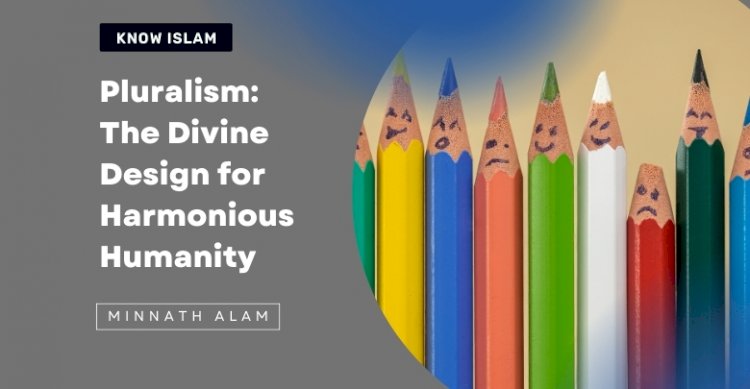


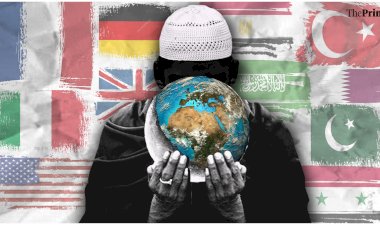
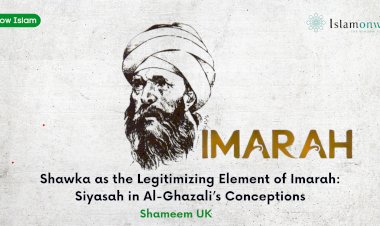
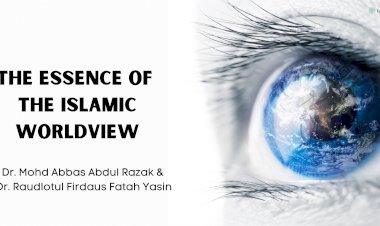

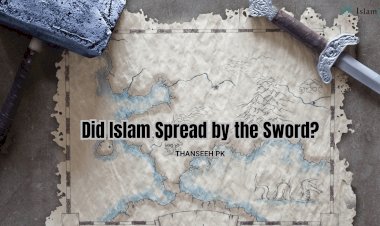















Leave A Comment